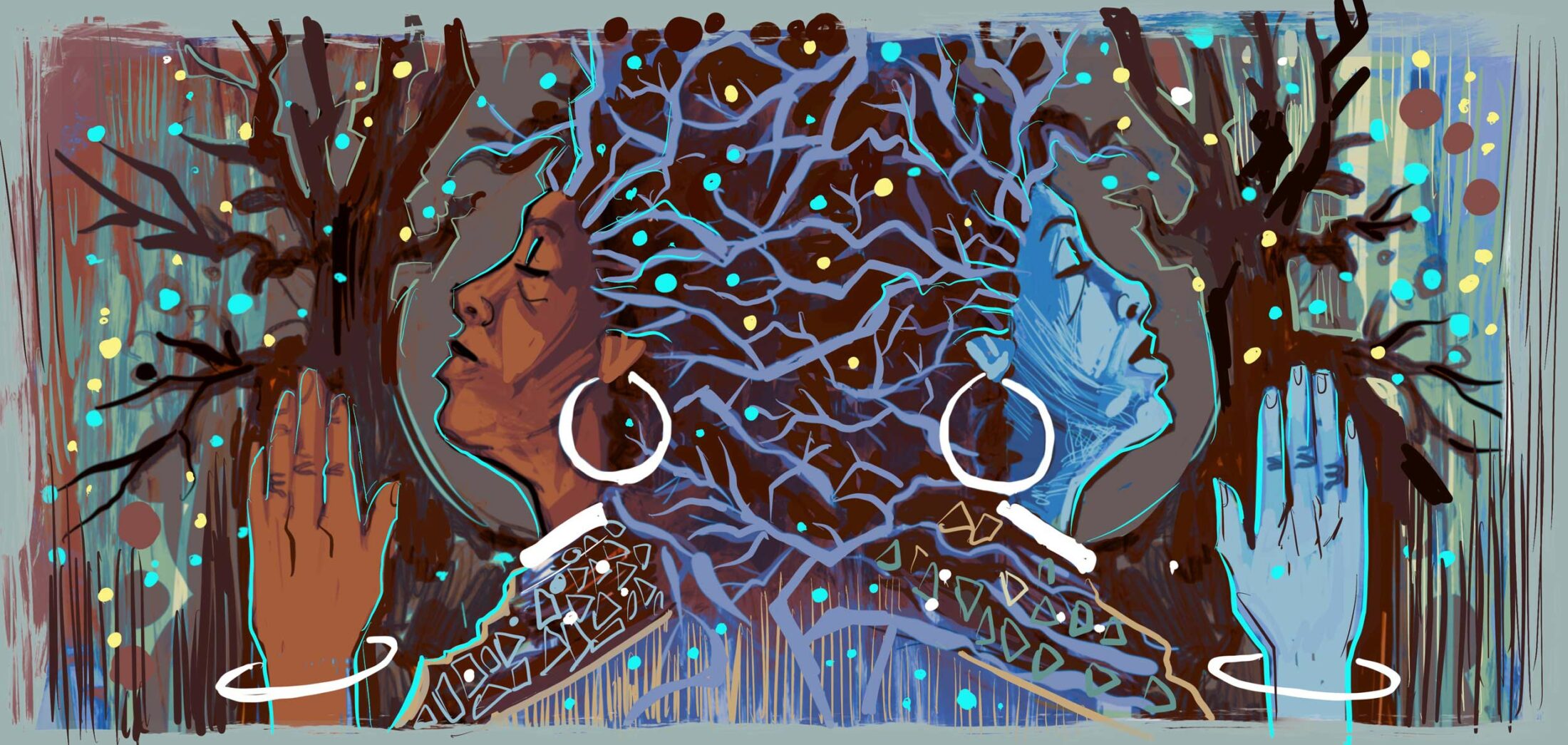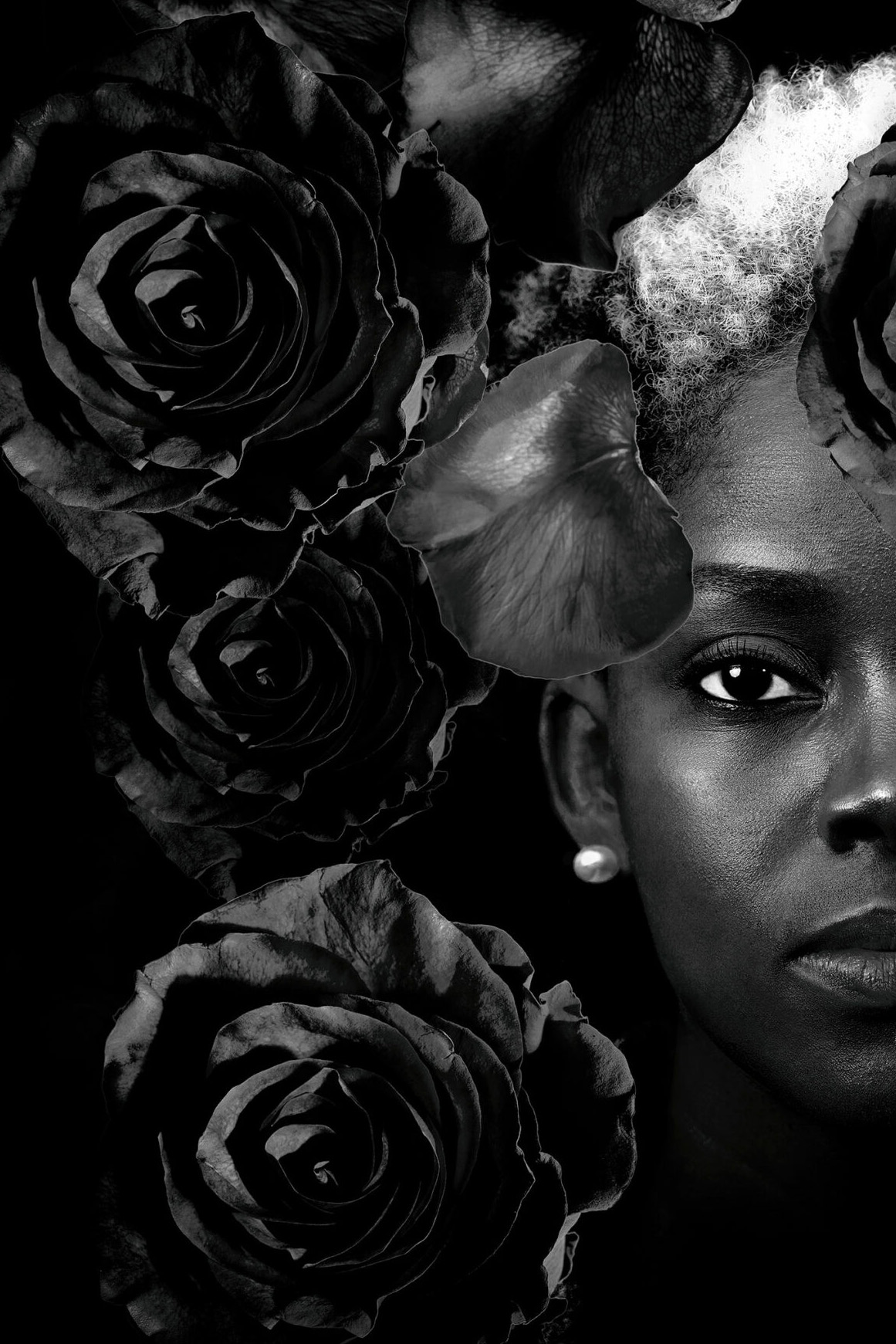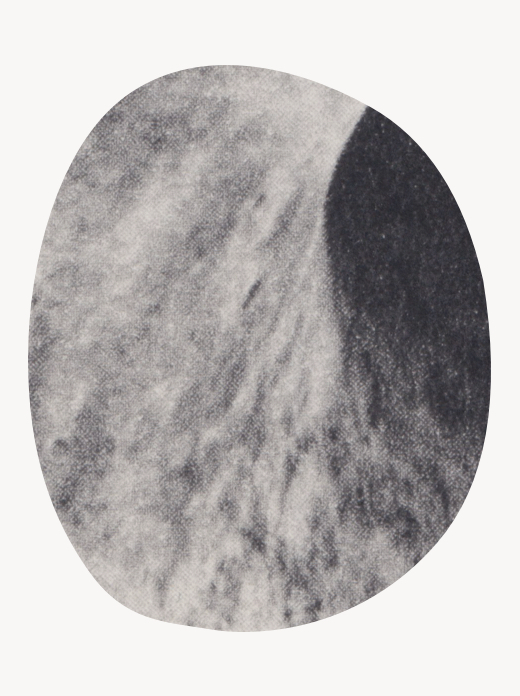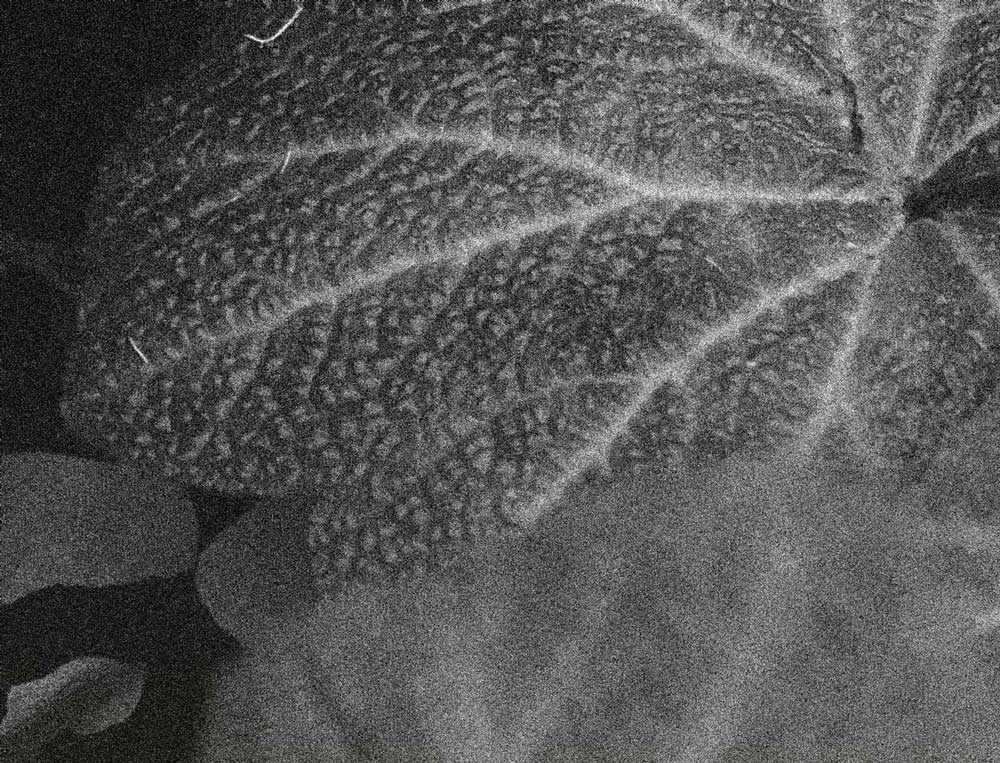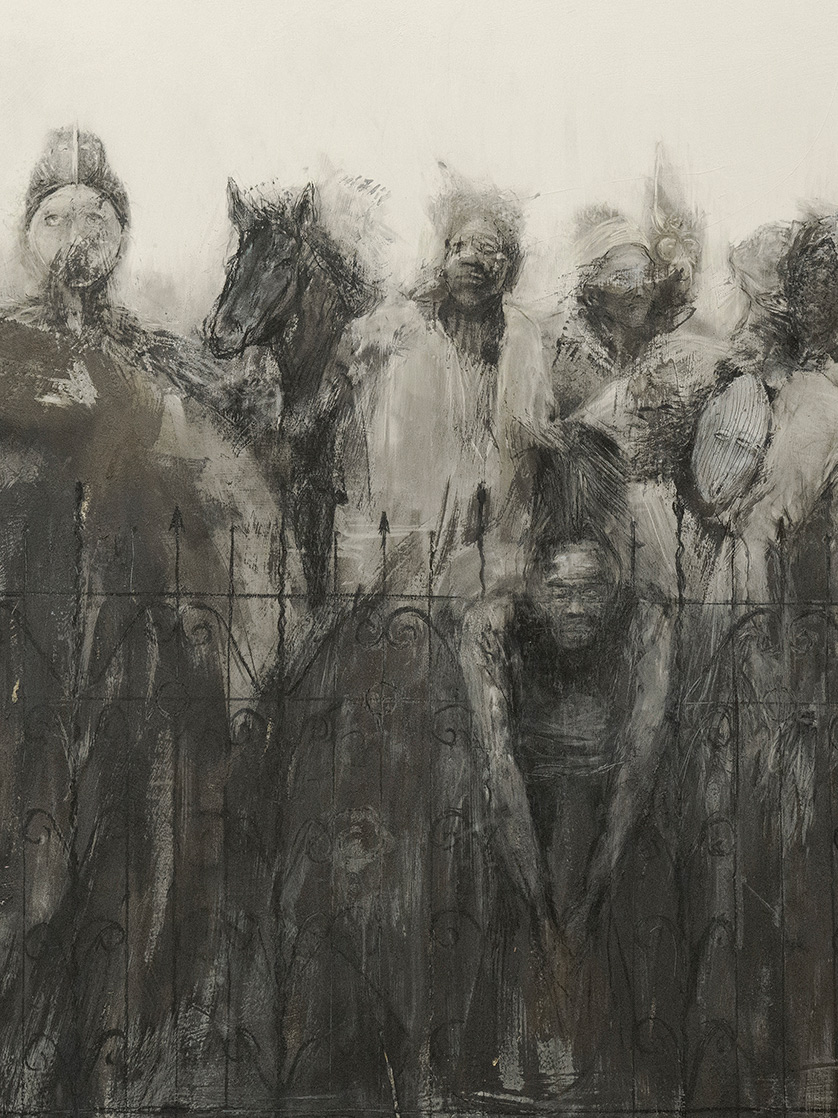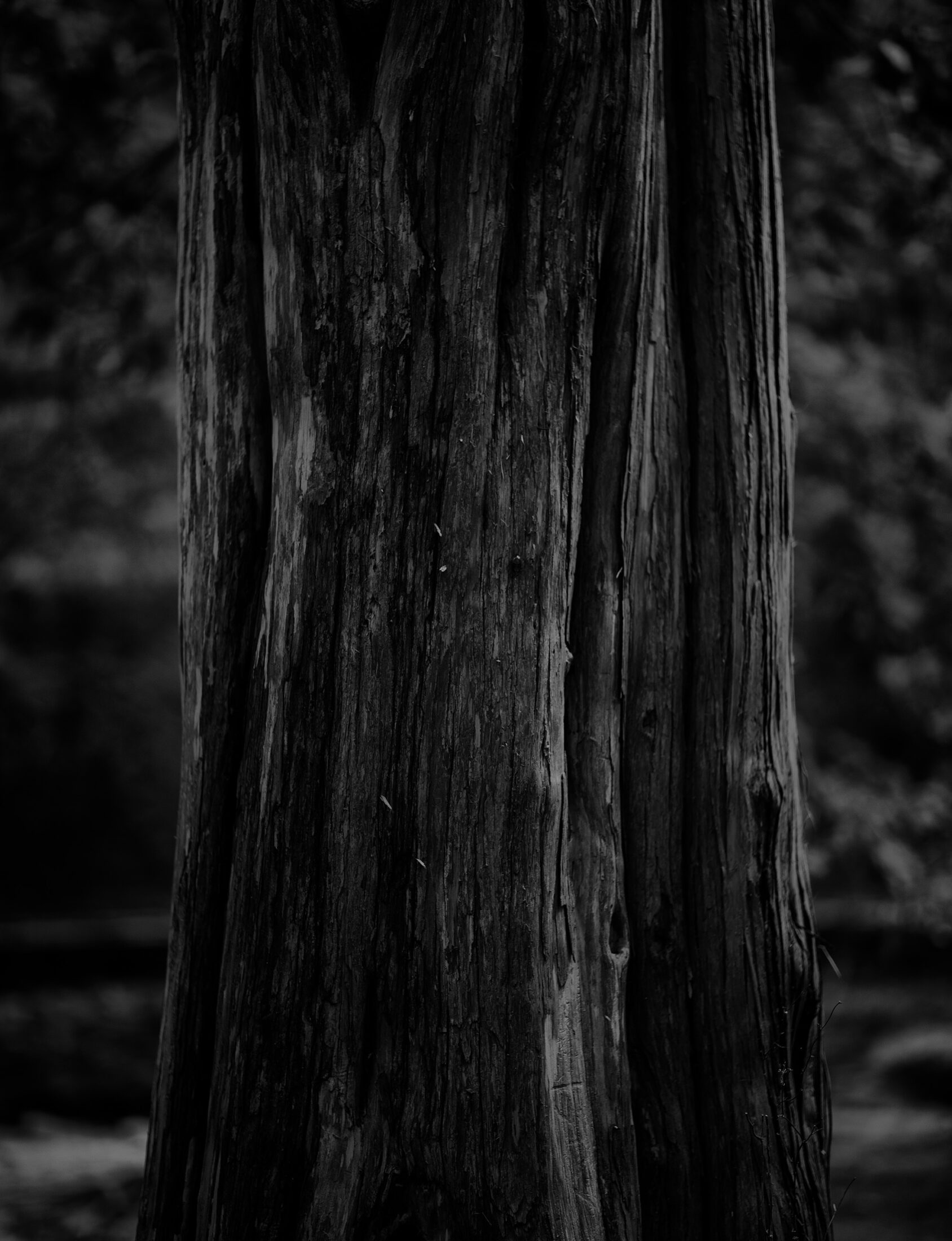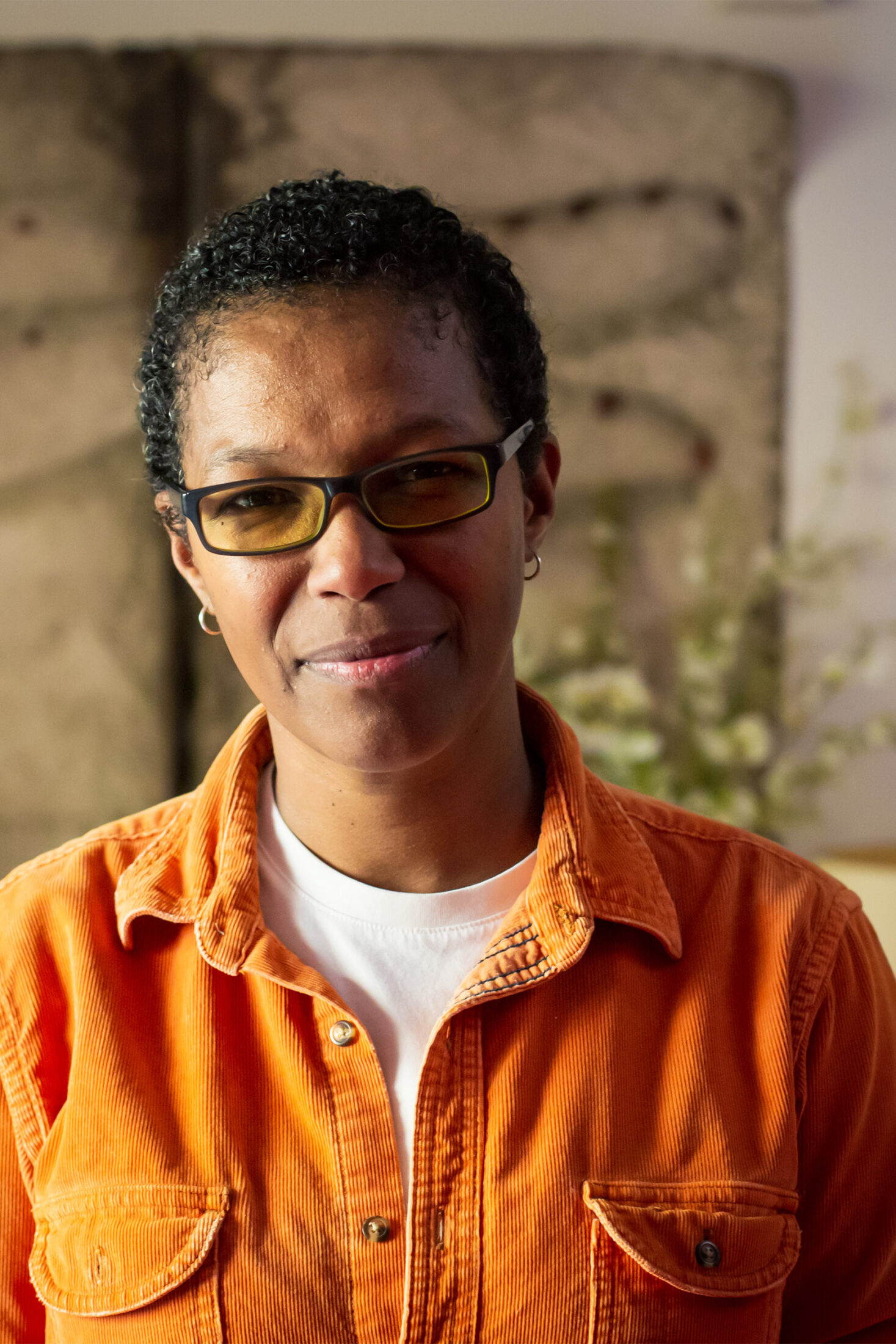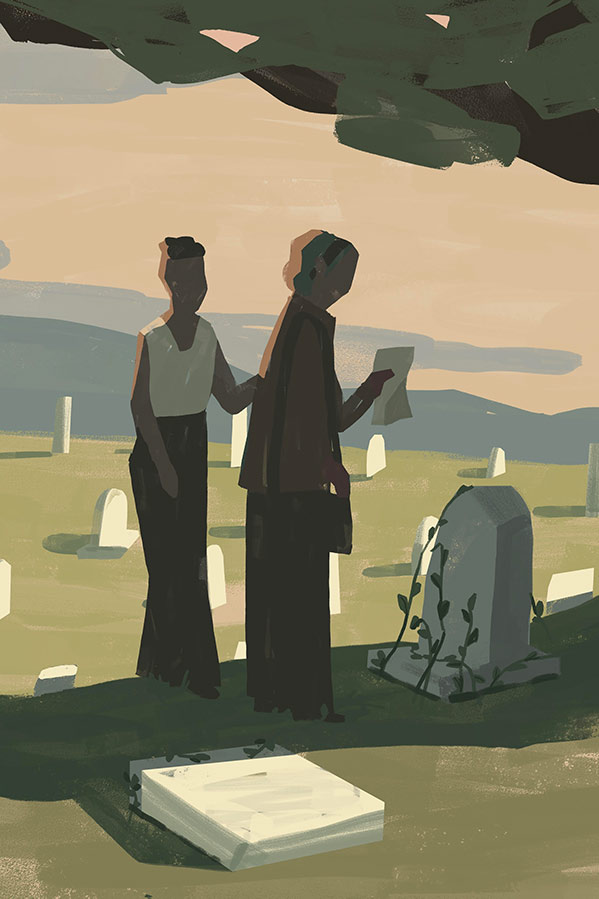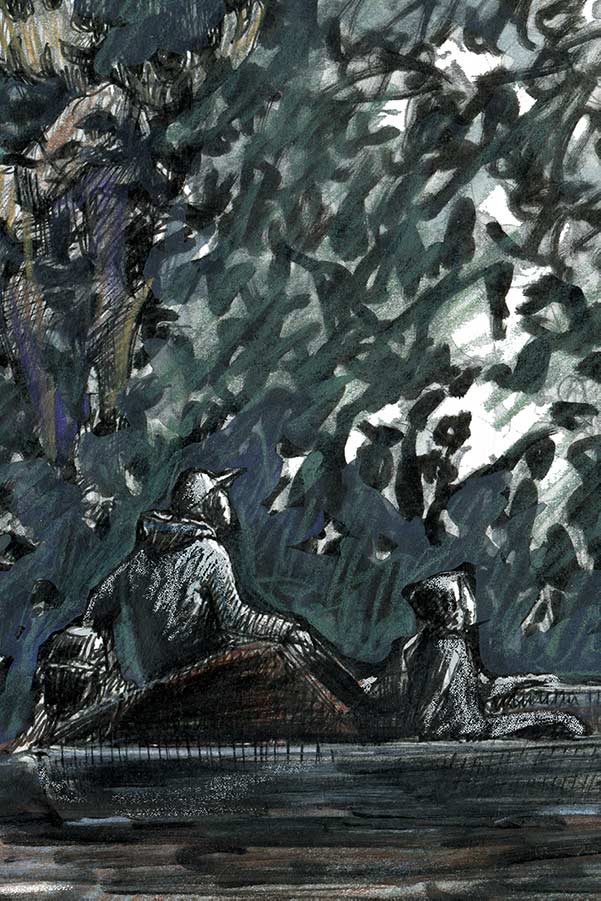Dr. Kinitra Brooks is the Audrey and John Leslie Endowed Chair in Literary Studies in the Department of English at Michigan State University and a Fellow at the Hutchins Center for African & African American Research at Harvard University. She specializes in the study of Black women, genre fiction, and popular culture. Her books include: Searching for Sycorax: Black Women’s Hauntings of Contemporary Horror and Sycorax’s Daughters. Her current research focuses on portrayals of the Conjure Woman in popular culture.
John Jennings is a professor of media and cultural studies at the University of California at Riverside. He is coeditor of the Eisner Award–winning collection The Blacker the Ink: Constructions of Black Identity in Comics and Sequential Art and cofounder of The Schomburg Center’s Black Comic Book Festival in Harlem. Jennings’s current projects include the horror anthology Box of Bones, the coffee table book Black Comix Returns (with Damian Duffy), and the Bram Stoker Award–winning graphic novel adaptation of Octavia Butler’s classic dark fantasy novel, Kindred.
In a world where the cosmologies of Black women are continually erased and excluded from knowledge traditions, Kinitra Brooks seeks connection with her late great-grandmother, Mama Myrt, who first introduced her to rootworking traditions and inspired her life’s work. Kinitra’s essay, Myrtle’s Medicine, reflects on the meaning and beauty of embodied ways of knowing.
We are a people. A people do not throw their geniuses away. And if they are thrown away, it is our duty as artists and as witnesses for the future to collect them again for the sake of our children, and, if necessary, bone by bone.
—Alice Walker
Conjure studies [are] capable of linking magical and supernatural elements, on the one hand, with medicinal practices and natural processes on the other.
—Theophus H. Smith
Hey, baby, who your people?” were often the first words out of my great-grandmother Myrtle Anderson’s mouth whenever she encountered someone new. As a member of our family whose traditions of healing go back twelve generations before her, she holds legendary status. Born Myrtle Carrere in New Orleans on September 17, 1921, she lost her right leg at age ten when it was crushed under a commercial truck. Her mother, Julia Edgerson Carrere, was quickly paid a small amount of hush money and left to maneuver how to mother a now differently abled child.
I often wonder how much the white trucker and his company thought the limb of a little Black girl was worth. What actuarial chart was used to monetarily brush off the childhood trauma of my family’s matriarch?1 A woman who, after raising her only child, Clara Mae Anderson, went on to adopt and rear her niece Jacqueline Bachus. She subsequently looked after each of her grandchildren, great-grandchildren, and grandnieces until they entered school, because she firmly believed that day care was the devil. The importance Mama Myrt placed on caring for her family remains a guiding theme for my own particular exploration of Black women’s faith practices and the philosophies that ground them.
My Mama Myrt became a wife, mother, and entrepreneur—a licensed beautician—but her ancestral role as a rootworker and community healer leads the unfolding narrative of my life. My mother often recalls my great-grandmother’s insistence that she pull the car over because she’d spied a specific plant growing on the “neutral ground,”2 and she wanted to pick it and use it in a remedy. Folks in the community would come to her for tonics like goose grease and honey, which would loosen up the chest congestion, lubricating the body’s passageways for the phlegm to come out. These were tried-and-true treatments that were proven to work, pharmaceutical knowledge passed down through the generations of healers in our family. Most of all, they were affordable to the working poor of New Orleans’s Third Ward. These stories fascinated me as a little girl and fascinate me even more so now, as a seeker and a scholar interested in Black women’s ways of knowing.
The more I learn about my great-grandmother, the more I come to understand the rootworking tradition to be a vital yet undervalued form of knowledge for our times. These testimonies are remnants of the rootworking tradition in our family that I was never able to learn directly from my great-grandmother because she developed dementia in the last years of her life, just as I was moving out of the selfish myopia of my early teen years. The slow creep of her dementia symptoms mirrored not only the deliberate unraveling of knowledge tethers in our family but also the collective loss of this vast knowledge tradition.
Existing within me is a powerful urge to rediscover the folkways that transitioned with her death. It’s an urge that helps direct me to discover spiritual traditions through which my Mama Myrt may guide me from the ancestral plane. It is for me to help reconnect the line of healers in our family: to strengthen what has frayed and to reveal what has been covered by my family’s own fight for respectability and formal education. And so I use the formalized intellectual pursuits so hard-won by my grandparents and parents and interweave them with the folk traditions and medicines that were privileged by my great-grandmother.
My family’s journey to recover our ancestral lineage reflects the active and ongoing search for lost knowledge in the work of generations of Black feminist thinkers. This redemption is seen in Zora Neale Hurston’s insistence on documenting, celebrating, and recovering the cultural wells of knowledge found in the voodoo cults of New Orleans and the jook joints of rural Florida. My own search for Black women’s knowledge is guided by the recovery projects of Hurston’s literary works, as well as by folklore research undertaken decades later by scholars such as Alice Walker and Mary Helen Washington. I want to shout the names of those who have come before me—my personal and scholarly foremothers whose complex frameworks gird my academic and spiritual development and show me how the two intertwine.
“Conjure feminism” is a new name that weaves together old concepts and furthers the intellectual paths previously established by historical Black women I see as early philosophers of this framework: Tituba, an enslaved Caribbean woman and the first to be accused of witchcraft in the Salem trials; Hurston, the Harlem Renaissance writer, scholar, and folklorist; Marie Laveau, the renowned Vodou Queen of New Orleans in the nineteenth century; Nanny of the Maroons, a politically savvy leader of the Maroons of Jamaica in the eighteenth century, who served as a physical and spiritual healer through her wide knowledge of herbs and traditional healing methods; and Dona Beatriz Kimpa Vita, a late seventeenth-century subject of the Kongo Kingdom who led a fiery resistance movement against the Catholic Church, grounded in her insistence that she was possessed by Saint Anthony, and firm in her belief that Jesus was Kongolese. These are the intellectual matriarchs of conjure feminism: they have produced a wellspring of spiritual knowing that has always been present and accessible, and in naming, we bring forward the spirit of this work.3
My personal pursuit to recover my Mama Myrt’s understanding and practices of knowing through rootwork has grown into a larger intellectual-recovery project that celebrates the lives of Black Southern and Caribbean women as well as their ways of knowing. Rootwork is a semiformal manifestation of Black folks’ practical need for healing through the making of medicines, intertwined with the highly theoretical process of creating an inheritance of knowledge steeped in spirituality.
In centering my journey on the inheritance of knowledge, I must begin to discern: What constitutes knowledge? What does it mean to know something? Further, I must begin to interrogate the dynamics of knowledge: What is considered worth knowing? What are the approved ways of sharing that knowledge? And what power dynamics are at play in the passing down of knowledge? What are the parameters of considering whether certain ways of knowing are illegitimate or unworthy of acknowledgment? My thought leaders are Black women, a demographic that has been consistently dismissed as unworthy of learning from, under the assumption that our ways are so easily knowable. So often our knowledge practices are misread and/or taken for granted. But there is an immense pleasure in belonging to and recognizing those specific thoughts, suppositions, and ideas that passed not just through your grandmother’s being but through her grandmother’s being as well, and so on. It is a beautiful thing to know, to discover. To belong to a lineage of knowledge. As Langston Hughes insists,
I’ve known rivers:
Ancient, dusky rivers.
My soul has grown deep like the rivers.
Kristie Dotson, PhD, a Black feminist philosopher, centers her research on Black women’s ways of knowing, which in philosophical terms are defined as epistemes (frameworks of knowledge). Dotson defines epistemic exclusion as an oppressively “unwarranted infringement” on the right to actively contribute to “knowledge production.” Literally, rootwork became the foundation of pharmaceutical science as Black women ground up roots to put in salves, and steeped leaves to make healing teas. Figuratively, rootwork is an active part of the spirit work that informs Black women’s epistemic agency: knowledge practices infused with traditional African religious practices are put into action—used to both heal and harm as part of systems of belief. I am openly and consistently pushing back against the epistemic exclusion of Black women’s knowledge practices.4
As I read Dotson’s work, it becomes easier to see how my own family let generations of knowledge fade away, beginning with our decision to move to New Orleans from Plaquemines Parish. In the city, my family began to prosper economically because my grandmother Clara Mae Dunn, née Anderson, and grandfather Wilbert England Dunn graduated from college and became schoolteachers, launching subsequent generations into similar paths of postgraduate degrees and careers in education, civil service, and the corporate world. And yet, amid this economic and professional success and stability that I am a direct product of, I continue to wonder, what have we lost in our aspirations toward Black middle-class achievement? And how does my insistence on recovering our family’s roots in conjure, gardening, and rootwork begin to restore our family’s deep connection to the land?
How did we lose faith in the medical knowledge traditions of our grandmothers?
I have a backyard garden in which I grow okra, jalepeños, cucumbers, and peppers. I am feeding my family and learning how soil works as I soothe my soul and commune with my great-grandmother’s spirit.5 The presence of my maternal ancestors is manifest as I move my large brown hands in the soil and wipe the sweat off my brow, my upper-arm fat jiggling just like that of my Mama Myrt.
The journey has not been perfect. Tomatoes have proved to be a constant reflection of my failures as a burgeoning horticulturist. My garden began to feed a family of possums, which eventually nested in the air-conditioning ducts under my home. They tore the duct system to shreds, and the repairs set us back $4,000. My husband has requested (and been granted) a short moratorium on my vegetable gardening, until our family savings can recover.
The growing understanding of what my family has lost and what I am slowly regaining also reflects a reality commonly seen in the Black community as it struggles with the effects of a willful ignorance of the knowledge stores that Black women have created and cultivated. Just as I am using Myrtle’s medicines as a source of epistemic agency to heal family wounds and foster difficult conversations, I feel the need to extend this discussion and activate on a larger scale the knowledge frameworks of Black Southern and Caribbean women thought leaders through the development of the construct I term “conjure feminism.”
Conjure feminism is an embodied theory that recognizes the importance of spirit work in the development of Black feminist intellectual traditions. It is an active inheritance that comes to me through Myrtle’s medicines, and I do careful work to trace its lineage, in part, through the practice of rootwork. The largest part of my recovery project consists of following the intellectual threads of the previously mentioned matriarchs and the influence of other knowledge systems—such as womanist theology, Black liberation theologies, and respectability politics—on the development of conjure feminism. How central were rootwork and herbology to the medical workers on plantations? How active were Black women in these practices? What did their medicinal gardens look like? What emphasis was placed on spiritual health and knowledge in curing the physical body? Which, if any, of these knowledge practices survive post-Emancipation? What was lost as Black communities strove to become more respectable and mirror mainstream (i.e., white capitalist) medical practices? How did we lose faith in the medical knowledge traditions of our grandmothers?
Scholar and critic Hortense Spillers believes in the presence of a Blackness that is brimming with agency and complexity. Spillers recognized conjuring’s potential early in her career: her 1985 edited volume, Conjuring: Black Women, Fiction, and Literary Tradition, articulates how Black women writers act as conjure women in their own unique ways. I find Spillers’s work to be generative, for I am, as she states, “claiming the monstrosity” of the conjure woman, “a female with the potential to ‘name.’” In particular, I am using conjure feminism to “rewrite … a radically different text for a female empowerment.” Here we can recall the subversive presence of Dona Beatriz Kimpa Vita—the world-shifting power plays she was able to make against the white supremacy and patriarchy of the Catholic Church at the height of its colonial power—and her surety in the Blackness of Jesus.
Spillers had the ability to interweave Western theories of being into Black feminist frameworks, which she believed to be as complex, although in different ways. This act expanded our idea of what complexity and “high” theory could be, a journey that leads right back to mother wit, folklore, and, for me, the faith practices of my own maternal ancestors. This is the scaffolding of conjure feminism—and the meaning and beauty of embodied knowledge.
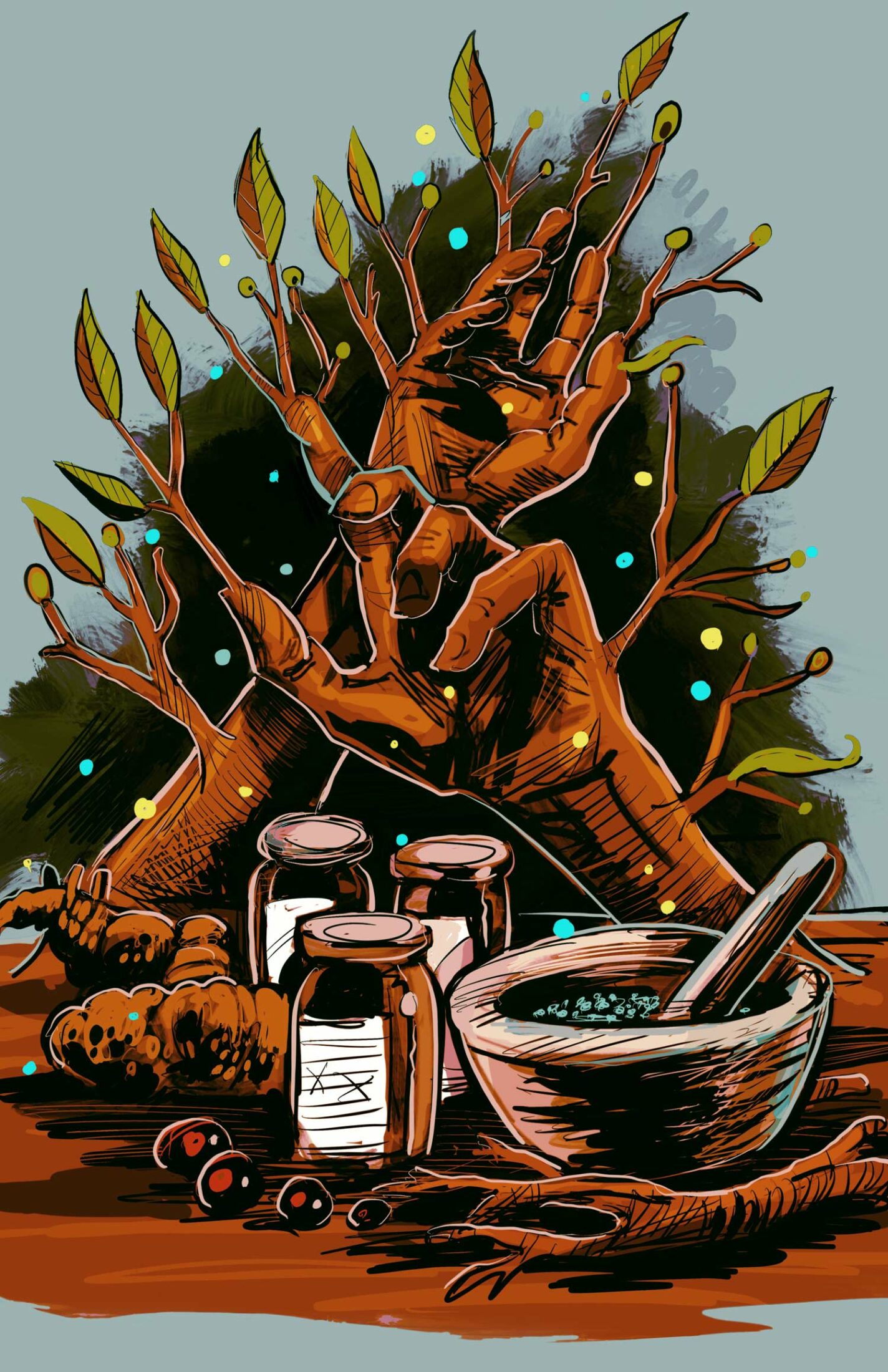
It is a beautiful thing to know, to discover. To belong to a lineage of knowledge.
My beloved Mama Myrt was the very first conjure feminist I ever knew. She was the first to offer a recognition of how the complex cosmologies of Black Southern women provide for a magical means of transforming reality. This recognition harks back to the basic definitions that Theophus H. Smith explores in his book Conjuring Culture: Biblical Formations of Black America (1994), in which he defines “conjure” as the ability “to invoke or summon up a spirit, an image, or an idea,” while simultaneously defining magic as “ritual speech and action intended to perform what it expresses.” These definitions are key because they move ideas associated with spirit work firmly from the realm of the irrational, or the illogical and unreasonable, to surer grounding of the nonrational, which leaves infinite room for knowledge frameworks outside of the flawed strictures of Western reliance on the rational. The cosmologies of Black Southern women are soundly centered in the nonrational.6
Again I return to Dona Beatriz Kimpa Vita and her insistence that Saint Anthony possessed her. She was written off by the leaders of the Catholic Church as crazy and illogical. But what made her public proclamation as the walking embodiment of a cherished saint any more or less believable than the central tenets of the church itself? Is possession more acceptable than a virgin birth? Than the Resurrection? Than transmogrification? Than the church leaders’ own beliefs in possession, even as they insist that it can only be demonic in nature?
Black women have long been rootworkers—pulling from ancestral traditions of the African diaspora.
There was one particular summer when I knew I was on the right path. I brought a basket of okra to my mother, who was visiting, and we began to shuck the corn I’d purchased from the supermarket. Her eyes lit up and she exclaimed, “Oh, we used to do all of this when I was a little girl! We would go to the country by your MawMaw’s [my grandmother Clara, who is Myrtle’s only child] people in Plaquemines Parish and get fresh seafood and fresh vegetables every other weekend. It was always better than what they had for sale in the city.” My mother began to reminisce about how she loathed the country but regretted forgetting how to work the land. And at the end of her stories, she looked up at me, her oldest daughter, and proclaimed, “I want to learn how to do this again. Can you teach me?” This moment is the circle, as my mother reveals her yearning for some of the peace that the spirit work has provided my soul. It is the healing. This is knowledge. This is Myrtle’s medicine as a conduit for memories and a vulnerability between mother and daughter—descendants with a complicated, loving, and fiery relationship all our own.
Mainstream Black folks—particularly those in the U.S. South and the Global South—have long claimed the wisdom of their familial matriarchs, yet have always felt the necessity to supplement and, many times, replace this knowledge with more learned and ultimately Western intellectual pursuits. Conjure feminism liberates the diasporic knowledge and folkloric practices of spirit work. Its cosmological framework provides Black folks with the fluidity necessary to survive and thrive in a constantly shifting, perilous world.
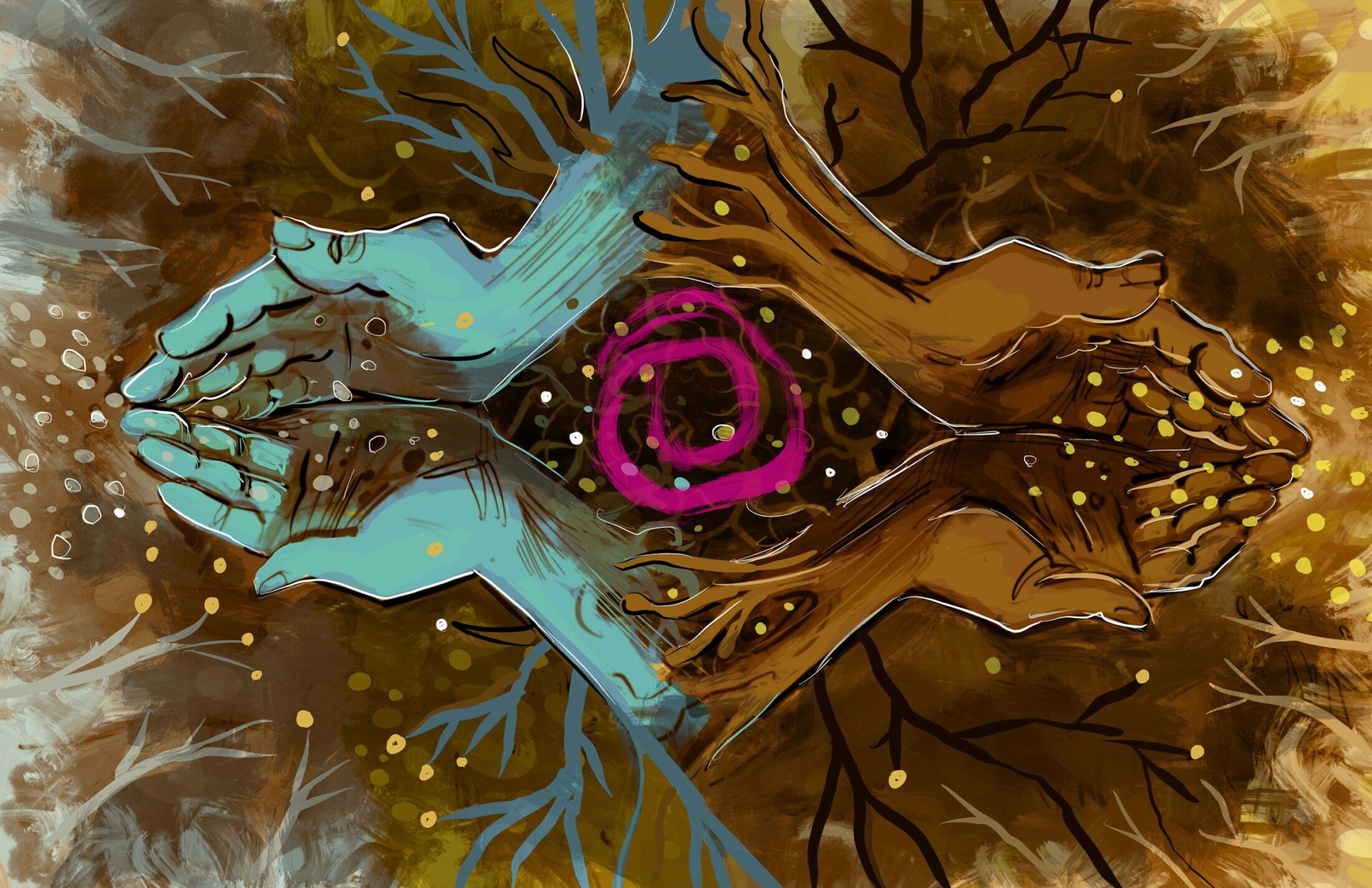
In October 2017, a small collective of Black feminist thinkers met at the University of Michigan’s Institute for Research on Women and Gender to participate in a weekend-long symposium focused on Beyoncé’s 2016 audiovisual project, Lemonade, for our forthcoming Lemonade Reader volume. I had already begun my journey in (re)discovering Myrtle’s medicines. As an organizer, I was particularly invested in the spiritual implications of returning to the liminal space of the Louisiana bayou—that brackish water in between salt and fresh—for Black women who inherit the role of cultural bearers in their families and communities. Beyoncé explores so many of these intersections and identities in Lemonade as she attempts to heal the generations of inherited emotional trauma in her family by reconnecting to her own maternal ancestors.
It was a weekend of rigorous intellectualism through numerous presentations and discussions. We took Beyoncé to task even as we danced to her music and proclaimed our lasting membership in the Beyhive. It was also a weekend of Black-woman bonding as we discussed relationships mourned, maternity delayed or destroyed, and found healing balms in our relationships with other Black women, both the living and those on the spiritual plane. At one particularly emotional moment, a formerly stoic colleague suddenly sobbed and said accusingly, “You damned conjure feminists are here making me have all of these feelings!” This was the moment when I recognized how we were using that Black-woman space—brimming with intellect, emotion, and spiritual renewal—to think about things differently, approaching both the texts and our lives in ways that needed to be articulated more cohesively. This is the river of knowledge unimpeded.
Previous Black feminist scholars such as Paule Marshall, Trudier Harris, and bell hooks have emphasized the importance of the kitchen and particularly the kitchen table. I believe that conjure feminism builds upon these previous metaphors to include the importance of the backyard and the garden especially. Within this framework, we can also interweave the intellectual traditions of Alice Walker’s In Search of Our Mothers’ Gardens (1983), Katherine McKittrick’s “Plantation Futures” (2013), and Lindsey Stewart’s “Work the Root: Black Feminism, Hoodoo Love Rituals, and Practices of Freedom” (2016). This building illustrates how the botanical knowledge of our grandmothers not only serves the practicalities of food but also offers the world-shifting potential of working the roots.
In reconnecting to my family’s historical lineage of healers, I am researching the small herb-and-vegetable gardens of Black women in the South and the Caribbean since enslavement. What did those gardens look like? What were the typical herbs cultivated for cooking and healing? How were traditions of rootworking and spiritual healing developed and passed down through these gardens? How did the cultivation of and care for a small family garden reflect a cosmological grounding for the conjure woman?
Black women have long been rootworkers—pulling from ancestral traditions of the African diaspora. Rootworking is more than an occupation, or even a calling. It is a set of knowledge practices gleaned from generations of lived experiences and developed as a way of integrating the spiritual, intellectual, and practical needs of Black women.
Doing the work of outlining the guidelines of conjure feminism is a loving act of recovery. I am doing the work of my beloved Mama Myrt in recognizing and elevating the complexities of Black women’s intellectual traditions while continuing to work the soil with my hands. I am using her medicinal traditions to heal the psychological and spiritual wounds inflicted by the continued erasure of Black women’s philosophical and faith traditions. I am doing the work to answer Mama Myrt’s central question: Who your people?
- For more information on how such calculations were made, I would recommend the work of Michael Ralph, PhD, whose research traces the origins of the contemporary life-insurance business to slave insurance offered in antebellum North America. His work can be found in the short article “Decoder: The Slave Insurance Market.”
- The “neutral ground” is the term for any grassy median that divides a street. It is specifically related to New Orleans.
- Conjure feminism is an ongoing epistemological project that I have only just begun. I have yet to fully conclude a hard-and-fast definition of the construct because I am still working through the possibilities of what it can be. I am still reading, still thinking, and still writing it out. Also, I am not the only one who gets to determine what conjure feminism can and should be. I am coediting an issue of a scholarly journal on the concept to expand its boundaries. What I have written here is what conjure feminism is to me, right here and right now.
- Dotson defines epistemic exclusion as “an unwarranted infringement on the epistemic agency of knowers” and believes it to be key to epistemic oppression, which she defines as the “persistent epistemic exclusion that hinders one’s contribution to knowledge production.” Finally, Dotson defines epistemic agency as “the ability to utilize persuasively shared epistemic resources within a given community in order to participate in knowledge production and, if required, the revision of those same resources.”
- Soothing and feeding one’s soul (and those of others) is an act of conjure feminism that can be articulated through the various technologies of the mother work and spirit work of Black women, be it tilling the garden, cooking gumbo, and/or celebrating the oral histories of our families.
- See K. Brooks’s “Maternal Inheritances: Trinity Formations and Constructing Self Identities in Stigmata and Louisiana.”
